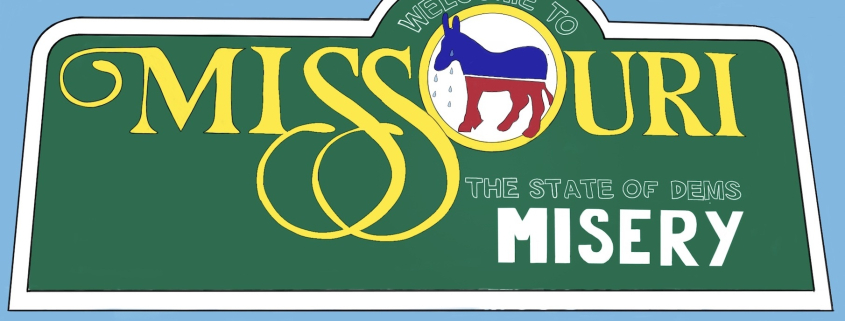I Reckon: Democratic misery in Missouri

If you know me, you’d know I’ve been involved in the Democratic party for a little while now. I would be lying if I said I enjoyed my time in all of those experiences and opportunities. I’d like to think that I assume the best from people, or in this case, the party. Just as I believe in a better South, I believe in a better Democratic party with a big enough tent to cover folks from all walks of life. Nearly every single experience I’ve had in Democratic politics has torpedoed my previously abundant sense of optimism and left me feeling fed up and disillusioned with the party that I thought could get things done. Watching the Missouri Senate race during this summer didn’t do any good with my sense of optimism either.
The loss of Lucas Kunce, a Democratic candidate and self-described populist, in his primary for a Missouri Senate seat, was incredibly disappointing. To describe oneself as a populist is a bold move for someone running for political office in this current environment as it involves an anti-establishment ideology which is much less common in Missouri. But beyond his own labels, Kunce’s messaging tactics and political branding are the most compelling ones I’ve seen from any progressive currently running in the South. And that says a lot.
He’s a former Marine and a veteran that’s been vocal about how the U.S. government lied to people to line the pockets of military defense contractors. He’s a Yale alumnus that managed to get by thanks to grants and financial aid. And he’s a Southerner with just enough gall to hit back at some of the name-calling and belittling that Republicans have heaped on Democrats for decades. What’s more, he got the official Bernie endorsement.
His story, stump speech, platform and general appeal make him appear the ideal candidate to reach Missourians from all across the political spectrum. He’s meeting Missourians where they’re at and talking to them about the kitchen table issues that matter to them. He put in the work, it seems. So why is it that he lost his primary? Doesn’t that fact alone render my belief that progressives can win in the South an outlandish and unsubstantiated one?
The two biggest kingmakers in politics are the money and the message. Organization is also critically important, but I think I’ve already made it pretty clear in previous pieces I’ve penned that I don’t have a lot of hope for the organizing skills of the Democratic party, so I won’t direct the focus of this entry there. Kunce has great messaging, and it helped him build a tent that Missourians from across the political spectrum could find themselves under. Of course, that’s only for Missourians who managed to find Lucas Kunce and hear his message.
In politics, money is equally as important, if not the make or break factor in campaigns. Money helps campaigns and candidates communicate, which is incredibly important in a world that’s moving at lightspeed towards the digital age. Cash buys ads, flyers and space on the radio waves. Without a way to communicate your message to the folks who you want to get to vote for you, you’re essentially a political nobody. A campaign and candidate’s message is only as good as the method in which it is delivered. In the case of who’s got more cash, Kunce’s small-dollar grassroots base just couldn’t pull him ahead of a multi-millionaire. Sure, Kunce managed to raise a hefty sum of $4.7 million during his run, putting him over the $3.4 million that his primary opponent Trudy Busch Valentine raised, but Valentine also injected a hefty $3 million into her own campaign thanks to her robust net worth.
All of this is slightly disappointing when you consider that the Senate Democrat’s campaign arm, the Democratic Senatorial Campaign Committee (DSCC), raised over $33.5 million in donations from April to June, largely thanks to the outpouring of emotional giving after the Dobbs decision — outraising their Republican counterparts. I’d like to think that Democratic donors are pitching in because they believe that Democrats can meet the moment and work to deliver on the promises they keep making. By failing to throw their sizable weight and resources behind Kunce, and candidates like him, the Democratic party has just missed another opportunity to do right by folks who want to see those promises kept.
Quynh Anh Nguyen is a rising junior writing about the implications of current Southern political events in her column “I Reckon.”

